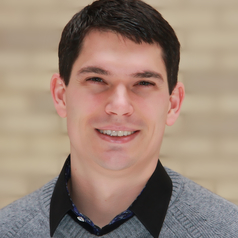
Martin Jucker
Lecturer in Atmospheric Dynamics, UNSW Sydney
Originally a PhD in Plasma Physics and Nuclear Fusion, I have switched to in atmospheric dynamics a while ago, and worked in the USA at Princeton University and New York University, as well as the University of Melbourne and now the University of New South Wales.
My expertise lies in climate dynamics, including stratospheric dynamics and the variability of the jet stream, but also cloud resolving simulations of tropical convection.
Less ![]()
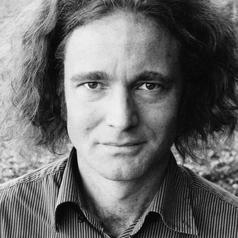
Martin Knust
Professor of Musicology, Linnaeus University
Martin Knust (Dr. phil., M.A.) is associate professor in musicology and member of the research center for Intermedial and multimodal studies at Linnæus University in Växjö, Sweden (LNUC IMS). His research interests focus on opera and music theatre after 1800 (especially the historical performance practice of speech, song and gestures), north European music after 1800 (especially reception and cultural transfer processes between the North and continental Europe), 16th-century sacred music, the music of Angkor (especially its iconography), and music in audiovisual political journalism (especially its production and aesthetics).
Less ![]()
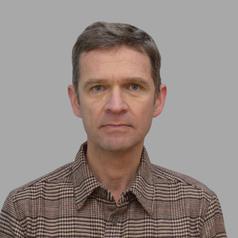
Martin Lages
Associate professor, University of Glasgow
After receiving a PhD from Heidelberg University and a DPhil from Oxford I worked as a postdoctoral fellow at the Max Planck Institute for Human Development, Berlin before obtaining a PD (habilitation) at Tuebingen University. I am a regular member of the Vision Sciences Society, Applied Vision Association, Scottish Vision Group and the Society for Mathematical Psychology. My research interests range from quantitative methods (hierarchical models, Bayesian inference), visual perception (motion, stereo, visual memory, visual awareness and illusions) to human decision making (sequential effects, cognitive bias, rationality, free will).
Less ![]()

Martin Lang
Senior Lecturer and Programme Leader in Fine Art , University of Lincoln
Martin Lang is senior lecturer in Fine Art and Programme Leader for MA Fine Art. He teaches both practice and theory on the MA and BA Fine Art programmes. Prior to working at Lincoln he taught on the BA Fine Art and BA History & Philosophy of Art programmes at the University of Kent and on the Foundation Diploma at University for the Creative Arts.
Martin trained as a painter before completing a PhD in History & Philosophy of Art, researching militant forms of art activism. He is an artist and a writer. He has exhibited internationally (Cyprus, Portugal, and the USA). In the UK, his work has been selected for exhibition by the likes of Turner Prize artist Dexter Dalwood and Tate Curator of Photography Simon Baker. He publishes research on art and politics and he writes for Trebuchet magazine.
Expressions of interest for PhDs in any of the areas listed below under "Subject Specialism" (or related subjects) are welcomed.
Less ![]()


Martin Lemberg-Pedersen
Honorary Associate Professor, University of Warwick
Martin Lemberg-Pedersen is Honorary Associate Professor at the University of Warwick and joined PAIS in September 2021. He is also Head of Policy and Society for Amnesty International, Denmark. Before Warwick, he was an Associate Professor at the Centre for Advanced Migration Studies, University of Copenhagen. Since 2019 he has been affiliated to the Advancing Alternative Migration Governance (AdMiGov)-project, funded under the Horizon 2020 programme. He has also been Assistant Professor at Aalborg University, and a Post Doc and a PhD at the University of Copenhagen.
Less ![]()
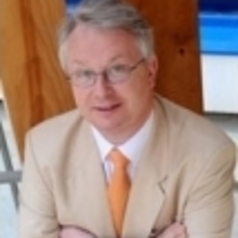
Martin McKee
Professor of European Public Health, London School of Hygiene & Tropical Medicine
As Professor of European Public Health at the London School of Hygiene and Tropical Medicine I co-direct the European Centre on Health of Societies in Transition (ECOHOST), a WHO Collaborating Centre that comprises the largest team of researchers working on health and health policy in central and eastern Europe and the former Soviet Union.
I am also research director of the European Observatory on Health Systems and Policies, a unique partnership of universities, national and regional governments, and international agencies and am President-elect of the European Public Health Association. I have published over 720 scientific papers and 40 books. I was an editor of the European Journal of Public Health for 15 years and am a member of numerous editorial boards, as well as being an editorial consultant to The Lancet.
Less ![]()

Martin McMahon
Assistant Professor in Intellectual Disability Nursing, Trinity College Dublin
Dr Martin McMahon (BNSc, MSc, H.Dip, PGCE, PhD) is an Assistant Professor in Intellectual Disability Nursing at the School of Nursing and Midwifery at Trinity College Dublin.
Martin's background is in nursing, and he is a registered nurse in the intellectual disability, children's and tutors’ division. He is also a fellow of the Higher Education Academy. Martin has worked in a variety of nursing and specialist nursing posts in Ireland and abroad. General areas include paediatric nephrology; children with life-limiting conditions; community intellectual disability nursing; psychiatry of intellectual disability (where he was an independent and supplementary prescriber), practice education and regulation.
Martin has published articles in many journals in this area and his primary research area of interest is the health inequalities and inequities that people with intellectual disability experience when accessing healthcare.
Less ![]()
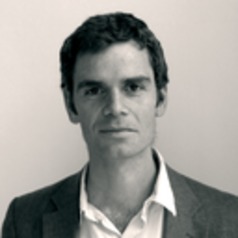
Martin Moore
Dr Martin Moore is director of the Centre for the Study of Media, Communication and Power, and a Senior Research Fellow in the Policy Institute at King’s College London. He was previously founding director of the Media Standards Trust (2006-2015) where he directed the Election Unspun project and wrote extensively on the news media and public policy. Recent research publications include:
Election Unspun: Political Parties, the press, and Twitter during the 2015 election campaign (2015); Who was hacked? An investigation into phone hacking and its victims (2015); Addressing the Democratic Deficit in Local News through Positive Plurality (2014) and IPSO: An Assessment (2013).
He is author of The Origins of Modern Spin (Palgrave Macmillan 2006) and ‘Plurality and Local Media’ in Media Power and Plurality, ed Steven Barnett and Judith Townend (Palgrave Macmillan, 2015).
Less ![]()
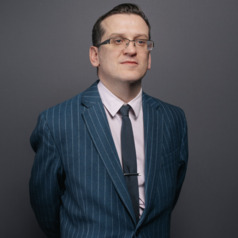
Martin Owens
Senior Lecturer in International Business, Sheffield Hallam University
Dr Owens is a Senior Lecturer in International Business at Sheffield Hallam University. His research focuses on the intersection of business firms and political violence.
He has published his research in Environment Planning A, International Business Review, Industrial Marketing Management and Services Industries Journal. He has a PhD from the University of Ulster.
Less ![]()
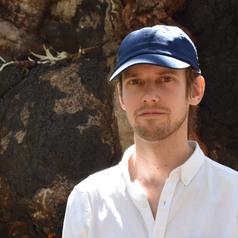
Martin Polkinghorne
Associate Professor in Archaeology, Flinders University
Martin Polkinghorne is an Associate Professor in Archaeology at Flinders University.
Martin completed his PhD at The University of Sydney focussing on the people and technology that made the temples of Angkor. Between 2011 and 2014 he led an Australian Research Council (ARC) Discovery project on pre-modern craft economies in Cambodia. This initiative discovered the first historic bronze foundry known in Southeast Asia and continues to excavate at Angkor.
Martin is Lead Chief Investigator of an international consortium on the ARC Linkage Project: 'Reuniting orphaned cargoes: Underwater Cultural Heritage of the Maritime Silk Route'. This project aims to discover the cultural value of the largest Southeast Asian ceramic collections in Indonesia and Australia with archaeological science and to preserve the underwater cultural heritage of our region for future generations.
As a Chief Investigator on the ARC funded Greater Angkor Project's 'Urbanism after Angkor (14th - 18th century CE): re-defining Collapse', Martin seeks to change perceptions of Cambodian history after the demise of Angkor, from depictions of defeat and loss towards recognition of adaptation and renewal. In a complementary research program, Martin led the ARC Discovery Early Career Researcher Award (DECRA) project 'New Light on Cambodia’s Dark Age: The capitals of Cambodia after Angkor (1350 – 1750)'. These projects have conducted the first archaeological investigations of Cambodia's Early Modern Period capitals on the banks of the Mekong and Tonle Sap arterial rivers. Research of Cambodia during a time of quickening international trade retrieves this period from a perceived Dark Age, and reveals critical linkages between the celebrated Angkorian past and the present-day.
Martin is an Honorary Research Fellow of the Asian Studies Program, The University of Sydney.
Less ![]()
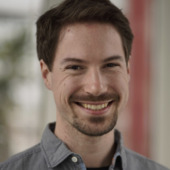
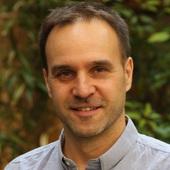

Martin Schaefer
Postdoctoral Researcher in Cognitive Neuroscience and Behavioral Psychology, Karolinska Institutet
Less ![]()

Martin Schiavenato
Assistant Professor of Nursing, Gonzaga University
I am a former newborn intensive care unit nurse and passionate about educating the next generation of nurses and advanced practice nurses in the context of a healthcare system that sorely needs competent, innovative, compassionate clinicians with a fire for social justice. My work lies at the junction of technology and its application to improve healthcare. I am a medical device inventor and alumnus of the Robert Wood Johnson Nurse Faculty Scholars Program, and the Pain in Child Health program from the Canadian Institute of Health Research. Themes in my research include pain assessment, technology in care, and the environment.
Less ![]()
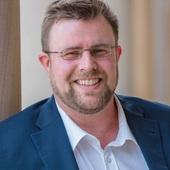
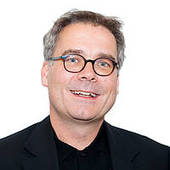
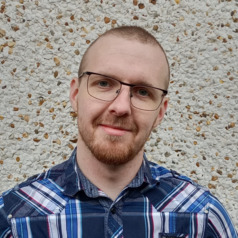
Martin Sharkey
Senior Post-Doctoral Researcher, University of Galway
My primary research area is in the investigation and ultimate removal of legacy and emerging hazardous contaminants from the environment, including: interventions and screening methods to remove hazardous additive chemicals from recycling streams to prevent contamination of clean plastic and textile materials; investigations of wastewater treatment systems, the release of treated water to the environment, and the use of by-products such as biosolid fertilisers in agricultural and industrial applications in order to assess environmental uptake of hazardous chemicals; proposing revisions to regulations relevant to the ubiquity of industrial chemicals in everyday applications and their uptake into the environment.
Thus far, I have co-authored three EPA technical reports and 16 peer-reviewed publications in high-impact international journals. These have thus far generated over 400 citations, along with h- and i10-indices of 8. I also have a broad range of teaching experience having lectured and demonstrated in undergraduate physics modules for several years, and the supervision of both undergraduate and post-graduate physics- and environmental science-based research projects. I have sat on the organising committees for multiple international conferences encompassing various environmental and health impact aspects of emerging contaminant research, and am part of several international organisations including the Institute of Physics and the International Waste Working Group, in order to stay apprised of and engaged with up-to-date knowledge in various fields of study.
I have advised on and worked on projects with multiple organisations towards the ends of removing harmful contaminants from circulation, improving waste management and recycling systems, and improving human and environmental health, including: the Environmental Protection Agency of Ireland; the Department of Agriculture, Food, and the Marine; Department of the Environment, Climate, and Communications; the UK’s Environment Agency, and the UK Department of Environmental and Rural Affairs.
Less ![]()
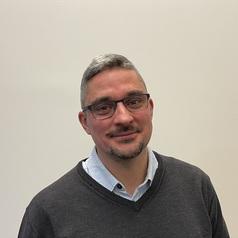
Martin Sokol
Associate Professor of Economic Geography, Trinity College Dublin
Dr. Martin Sokol is Associate Professor of Economic Geography at Trinity College Dublin, Ireland. His research focuses on central banks, monetary policy and financialisation, with special interest in the way central banks respond to crises, including the pandemic, the climate emergency and growing economic inequalities. He has a PhD in Economic Geography from Newcastle University, England, UK. He is one of the founding members of the Global Network on Financial Geography (FinGeo) and served as its first Secretary. Between 2016 and 2022, he led the European Research Council (ERC) project on new geographies of financialisation (Grant Agreement No 683197).
Less ![]()
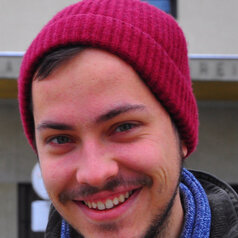
Martin Stefanec
University assistant in biology, University of Graz
I am a university assistant at the University of Graz at the Institute of Biology. I recently finished my PhD in the Field of Excellence Complexity of Life in Basic Research and Innovation. My research includes the behaviour of honeybees in relation to the ecosystem they live in, the patterns that emerge in nature at different levels and theoretical principles that lead to emergence.
Less ![]()
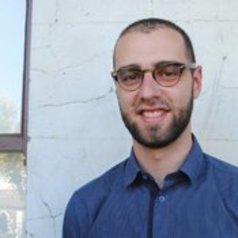
Martin Stute
Professor of Environmental Science, Columbia University
When I was about eight-years-old, I did not speak to my parents for a whole day because they threw a banana peel out of our car, which I found was unacceptable from an environmental point of view. I knew early on that I wanted to dedicate my career to environmental issues and studied Physics, because there was no such thing as Environmental Science back then. My PhD thesis research topic at the University of Heidelberg focussed on novel tracer techniques to study the dynamics of ground water flow, and the use of ground water as an archive of paleoclimate. I have been interested in water issues ever since and can still hardly resist to take a plunge into a thermal spring I encounter or take a sip from a well that might tap an interesting aquifer. I believe that water will play an increasingly important role in our attempts to achieve a sustainable global development. I am also trying hard to be a decent teacher and undergraduate and graduate student adviser, because I think that is where faculty members have the most influence on the future of our planet.
Some of my projects include:
Health Effects and Geochemistry of Arsenic and Lead
San Andreas Fault Observatory at Depth (SAFOD/EarthScope)
Carbon Sequestration
Natural Gas Production by Hydraulic Fracturing
Less ![]()
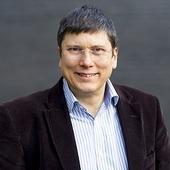
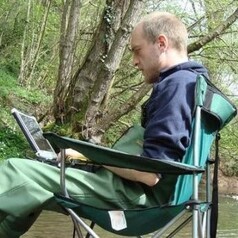
Martin Wilkes
Senior Lecturer of Life Sciences, University of Essex
As an ecologist with an industry background in data science, I am interested in data-driven explanations and predictions of biodiversity change.
Utilising large (river basin to global) scale datasets, ecological theory, statistical programming and high performance computing, my mission is to support the environmental science and management communities in finding solutions to the challenges of maintaining biodiversity, food production and water security in a changing world.
My research interests include ecology, biodiversity science, fisheries, eDNA metabarcoding, biogeography, metacommunity theory, artificial Intelligence, machine Learning, species distribution modelling, research software development.
Less ![]()
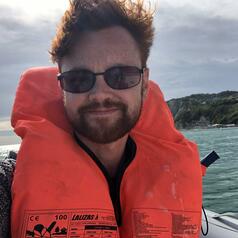
Martin D. Suttle
Lecturer in Planetary Science, The Open University
Dr Martin D. Suttle is a Lecturer in Planetary Science at the Open University, within the School of Physical Sciences. He holds a PhD in Planetary Science from Imperial College London and previously worked as a research associate at the University of Pisa and the Natural History Museum (London). Martin’s research specialises in the microanalysis of extraterrestrial materials (meteorites and micrometeorites). He studies water-rock interactions on asteroids and comets with the aim of understanding the role of water in the planet building process. Martin’s research also focuses on the flux of cosmic dust to the Earth both now and in the ancient geological past, investigating interactions between micrometeorites and Earth’s biosphere and atmosphere.
Less ![]()

Martin Ejnar Hansen
Reader in Political Science, Brunel University London
Martin Ejnar Hansen holds a PhD in political science from the University of Aarhus and is currently Reader in Political Science at Brunel University London. He specialises in comparative politics and public policy.
Less ![]()

Martin H. Trauth
Professor, University of Potsdam
Martin H. Trauth is a professor of paleoclimate dynamics at the University of Potsdam. After completing a degree in geophysics and geology, he started his career as a palaeoceanographer, working on questions of statistical uncertainties of paleoclimate time series. Then he became a paleolimnologist, working in the Argentine Andes, involved in the consequences of climate change in areas with extreme relief, also here with a strongly quantitative reconstructive and modelling approach. Recent work has focused on the statistical classification of climate change in order to better understand the relationship between climate and human evolution.
Martin H. Trauth published more than one hundred peer-reviewed papers in high impact journals such as Science, Nature Geosciences, Nature Communications and the Proceedings of the National Academy of Sciences of the United States of America. He also authored six bestselling textbooks on collection, processing, analysis and presentation of geoscientific data with SpringerNature, including the popular MATLAB Recipes for Earth Sciences, which will be published in its 6th edition in 2024. Martin H. Trauth has published a large number of popular science works and has been involved in television documentaries on various topics in an active or advisory capacity.
Since ~30 years Martin H. Trauth has taught courses mostly in data analysis in earth sciences and science communication. He also directed five international summer schools funded by the Volkswagen Foundation with 25-70 participants and 15-20 lecturers in Ethiopia, Kenya, Tanzania, Germany–and during the Covid19 pandemic–online. He has supervised numerous bachelor's, master's and doctoral theses by young scientists who now hold positions of responsibility in geosciences in the private sector and in science. He is also very involved in communicating scientific knowledge to the public, above all in the context of the Potsdam Children's University with lectures for up to 1450 children aged 8-10, Open Day and Science Day, lectures for schools and the Society for the Gifted Child.
Less ![]()
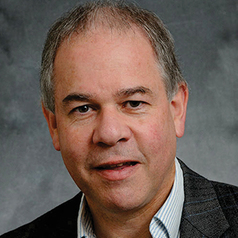
Martin J. Head
Professor of Earth Sciences, Brock University
Martin studies modern and fossil (especially late Cenozoic) marine dinoflagellate cysts for their intrinsic value in understanding the development of modern plankton, and for their utility in solving stratigraphic and palaeoecological problems. He maintains an association with the Quaternary Palaeoenvironments Group at the University of Cambridge.
Specific research interests and activities include:
Palynology and the deep-sea record, particularly ODP Leg 105 (Baffin Bay and the Labrador Sea) and ODP Leg 144 (western Pacific) where he served as shipboard palynologist, and the North Atlantic DSDP Sites 603 and 610.
Eemian (last interglacial) dinoflagellates of the Baltic Sea, as part of the EC-Funded BALTEEM project.
Late Cenozoic dinoflagellates of the Black Sea, Mediterranean and Paratethys
High-latitude Cenozoic palynology (e.g. East Canadian Arctic, Spitsbergen, Alaska, Sakhalin Island: spores, pollen, dinoflagellates)
Plio-Pleistocene palynology (spores, pollen, dinoflagellates) of the southern North Sea basin
Dinoflagellate cyst record of the Early–Middle Pleistocene transition in the Mediterranean
Neogene dinoflagellates worldwide
Morphology, taxonomy and nomenclature of living and late Cenozoic dinoflagellates
Less ![]()
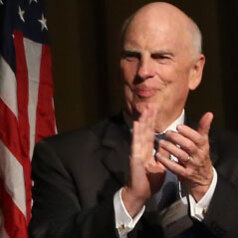
Martin J. Pasqualetti
Professor of Geography and Senior Global Futures Scientist, Arizona State University
Dr. Martin J. Pasqualetti is a Professor of Geography in the School of Geographical Sciences and Urban Planning and a Senior Global Futures Scientist in the Julie Ann Wrigley Global Futures Laboratory, both at Arizona State University. He concentrates on matters of energy and society, and has written extensively on the subject of energy landscapes. In acknowledgemen of his lifelong contributions to energy studies, he was honored with the Alexander and Ilse Melamid Gold Medal from the American Geographical Society (2015); Distinguished Alumnus of the Year by the University of California (Riverside) (2018); and Elected Fellow of the American Association of Geographers (2019). He has advised several agencies and NGOs, including the U.S. Department of Energy, the National Renewable Energy Laboratory, the U.S. Office of Technical Assessment, the National Academy of Sciences, the Arizona Office of Energy Policy, the Union of Concerned Scientists, and the Natural Resources Defense Council. His latest books include The Renewable Energy Landscape (Routledge) and The Thread of Energy (Oxford).
Less ![]()
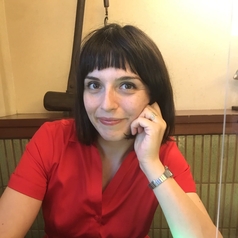
Martina Baradel
Marie Curie postdoctoral researcher, University of Oxford
I am a postdoctoral researcher at the University of Oxford, conducting research on Japanese organised crime (yakuza) and emerging criminal groups in Japan.
Less ![]()
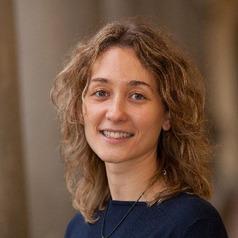
Martina Bozzola
Associate professor, School of Biological Sciences, Queen's University Belfast
Less ![]()
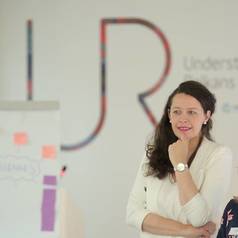
Martina Egedusevic
PhD Candidate, Impact Fellow (Green Futures Solutions), University of Exeter
Dr. Martina Egedusevic specializes in employing nature-based solutions that utilize natural processes to tackle environmental challenges. She provides expertise in managing flood risks, disaster risk reduction, and related environmental concerns. Born in Trebinje, Bosnia & Herzegovina, where she completed her secondary education, she later pursued university studies in Belgrade, Serbia, and earned her Ph.D. from Heriot-Watt University, Edinburgh, Scotland.
Currently an Impact Fellow at the University of Exeter’s Land, Environment, Economics, and Policy Institute (LEEP), Dr. Egedusevic’s research has focused on the role of woodland creation in mitigating flood risks in Scotland. Her early career began as a flood protection engineer at Srbijavode in Serbia, working on flood hazard mapping and mitigation strategies. She later joined the SENSUM project, investigating natural hazards like landslides and debris movement.
Her consultancy work at ARUP further expanded her expertise in climate adaptation and environmental risk management across the UK. Dr. Egedusevic’s career is marked by a deep commitment to using sustainable, nature-based solutions to enhance environmental resilience and disaster risk reduction globally.
Less ![]()

Martina Jakubchik-Paloheimo
Ph.D. Candidate, Department of Geography and Planning, Queen's University, Ontario
I have 11 years of international and Canadian experience with specialized knowledge in Mediation, Conflict Resolution, Qualitative research, Facilitation, Peace-building, Restorative Justice and Reconciliation. As a Educator, Mediator and Circle Keeper I bring a unique and highly diverse set of experiences to my teachings, research, project management and trainings. Being trained in International and cross-cultural settings in Canada, Haiti and Ireland. I bring a set of highly attuned skills to the projects I work with. I am competent in grant writing, conflict transformation process design, power rebalancing, Indigenous rights advocacy, consensus building and conflict coaching.
I have completed my Masters of Philosophy in International Peace Studies from Trinity College in Ireland and have obtained Advanced Dispute resolution training from York University, and the GlenCree Centre for Peace and Reconciliation. I have worked with and for NGO's, Government, and Communities. I am fluent in English, Portuguese, Spanish and can speak some Haitian Creole. I learned to speak both Spanish and Portuguese while living abroad in South America after completing my undergraduate degree in Philosophy and Environmental Studies. My experiences abroad and especially in Latin America, have created a passion for reconciling relations to our natural world and one another.
I am currently in my forth year of my PhD at Queens University working in Human Geography in the Heath, Environment and Communities lab working with Dr. Heather Castleden. My research is examining decolonial knowledge production, power in neocolonial extractive landscapes, feminist political ecology and geographies of peace in the Ecuadoran Amazon. I am working in collaboration and partnership with members of the Indigenous Shuar Community through community-based participatory research to preserve their ancestral territory and traditional ecological knowledge.
My research is also working to support their Community Based Eco-Tourism Projects, and broader Foundation founded by the Shuar for Indigenous peoples of the Ecuadorian Amazon and stewardship of their forests. Visit the project at: Inishanunka.org
Having travelled to 42 countries across the globe all of my experiences, studies, and have shaped my commitment to social and environmental justice. As of right now I am available for part-time consulting work at home in Toronto, remotely, and internationally. Over the next few months you will find me back and forth from the Ecuadorian Amazon, the site of my field research as I finish my disseration.
Less ![]()
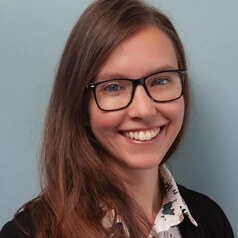
Martina van Heerden
Senior Lecturer in English for Educational Development, University of the Western Cape
Martina van Heerden (PhD) is a senior lecturer at the University of the Western Cape. She teaches academic literacies to undergraduate science students and Literacy Studies to Linguistics Honours students. Her research interests encompass a range of learning and teaching topics, such as feedback literacy, peer review, academic development, and supervision.
Less ![]()

Martine Dennie
Assistant Professor, University of Manitoba
Assistant professor at the Faculty of Law at the University of Manitoba. PhD Candidate at the University of Calgary. Research areas include violence in hockey and assumption of risk and consent in sports.
Less ![]()
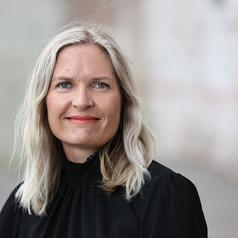
Martine Kropkowski
Tutor, The University of Queensland
Martine Kropkowski teaches professional and creative writing with the writing team at The University of Queensland. She is also a HDR candidate researching the role that language and community-generated narratives play in coercing and controlling members of cult-like organisations.
Less ![]()
- Market Data























